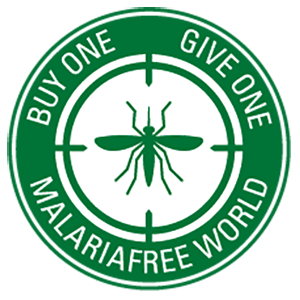World Mosquito Day
World Mosquito Day was created to honor the discovery of the link between humans, malaria, and mosquitoes. British doctor Ronald Ross discovered on 20 August 1897 that malaria is transmitted to humans by infected mosquitoes. He won the 1902 Nobel Prize in Physiology and Medicine for this work. Since then, 20 August has been declared World Mosquito Day.
World Mosquito Day aims to raise awareness about the risks of a mosquito bite and how it can be prevented, as well as fundraising for research into the cure of malaria. It is also a salute to the groundbreaking work of Sir Ross and scientists who have followed him.

World Malaria Day
World Malaria Day was established in May 2007 by the World Health Assembly, the decision-making body of World Health Organization. The day was established to provide “education and understanding of malaria” and spread information on “year-long intensified implementation of national malaria-control strategies, including community-based activities for malaria prevention and treatment in endemic areas”.
Besides providing education, World Malaria Day is also a good moment to look back on results obtained. Over the last 2 decades, a total of 7,6 million lives have been saved from malaria globally, of which 94% in Africa. Until the world is free from malaria, drawing attention for the deathly disease is still needed. Preferably every day, but at least once a year on World Malaria Day. World Malaria Day is every year on 25 April.
*Source: World Health Organisation
Another 5,600 people protected against malaria
In May 2022, our Chief Mosquito Officer Arnoud Aalbersberg left for Uganda to distribute mosquito nets to local coffee farmers and their families. In this video, Arnoud takes you with him on the outreach in Bulera, Uganda. The coffee plantations of the farmers are popular breeding grounds for (malaria) mosquitoes and good protection is therefore literally a matter of life and death. Malaria is still one of the deadliest infectious diseases in the world, with children under the age of five being the most affected. During this outreach, we distributed a good 1,400 mosquito nets on behalf of Care Plus®, protecting another 5,600 people.
The impact of COVID-19 on the fight against malaria
At the start of December 2020, a digital interview between Arnoud Aalbersberg (Care Plus®) and Ashaba Faridah (Bambino Life Foundation) took place to discuss the effects of COVID-19 on malaria in Uganda.
Uganda got ahead of COVID-19 before there were any cases. The president put the country under lockdown and closed the borders which resulted in a number of COVID-19 deaths below 40 in Uganda, but the strict lockdown measures affected the outreaches and malaria prevention as well. Moreover, the risk of malaria infection increased as people stayed more inside their houses during the COVID-19 pandemic.
Malaria is a deadlier pandemic than COVID-19. The number of potential deaths from malaria is almost back to the level of 15 years ago. Every minute, someone dies from malaria. Although malaria makes more victims than COVID-19, the latter gets way more attention than malaria. Probably because malaria currently is not a global problem whereas COVID-19 is. Outreaches of which information about malaria prevention and printed mosquito nets are distributed are therefore of vital importance.
World Mosquito Day (Podcast)
On 20 Augustus 2020 it is World Mosquito Day. In honour of this day we raise awareness to the major consequences of a mosquito bite. Did you know that the mosquito is the deadliest animal in the world? Care Plus Chief Mosquito Officer Arnoud Aalbersberg has a very inspiring and interesting conversation with mosquito biologist Bart Knols.
They discuss some very urgent and interesting topics like how to eradicate Malaria and the upcoming risk of the growing population of Tiger Mosquitos in Europe. Made possible by 247streaming.
Also available via Apple Podcasts
World Malaria Day (podcast)
25 April is World Malaria Day. On this day, we want to raise awareness of this deadly disease that affects more than 228 million people annually. Still, more than 405,000 people die of malaria, and most of the victims are children under the age of 5.
In honour of World Malaria Day, the Travel Health Group hosted this first podcast with interesting guests who are all involved in contributing to a malaria-free world by 2030. All to support our Buy One, Give One campaign by Care Plus®. You can listen to insights of Bart Knols (vector biologist), Ashaba Faridah (CEO and founder of Bambino Life Foundation) and Michiel Lampers (import and export manager at The Coffee Quest Europe).
Presentation: CEO and founder of Care Plus/Travel Health group Arnoud Aalbersberg. Made possible by 247streaming.
Also available via Anchor
